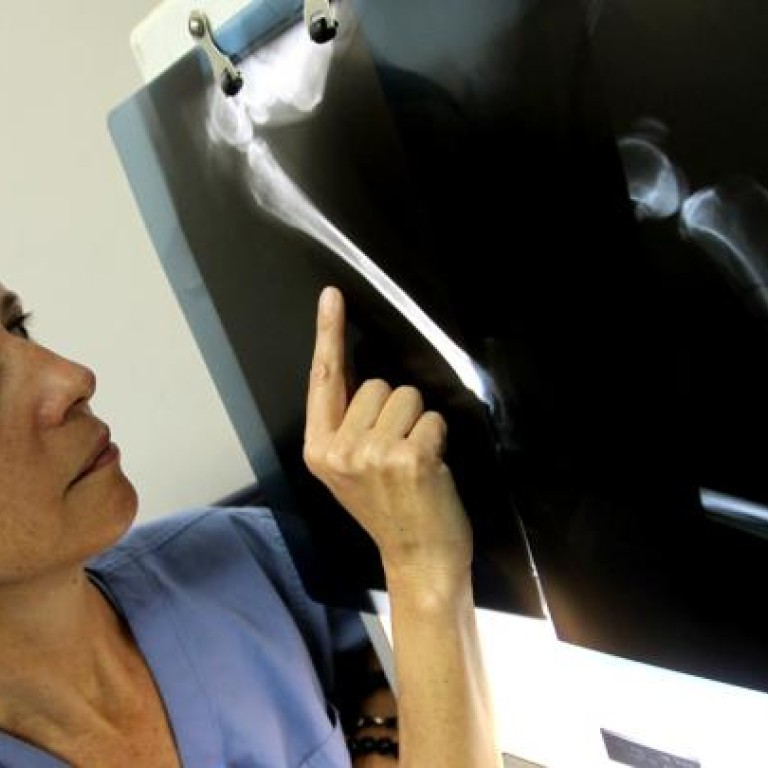
Veterinary surgeon shortage 'poses threat to public health'
'Shameful' shortage of care experts on farms due to city's lack of a training school may lead to rise in animal-related diseases, experts say
A severe shortage of veterinary surgeons in Hong Kong is hitting farmers and posing a threat to public health.
The crisis has been caused by a lack of veterinary training in the city and the fact that more than 90 per cent of the 400-plus vets practising in Hong Kong care for household pets.
The issue has emerged at a time when the World Health Organisation (WHO) is warning of a mounting threat to humans from animal-related diseases.
Veterinarian and infectious disease specialist Howard Wong Kai-hay said: "Hong Kong may be one of the few places in the world where we raise livestock and produce meat without [the supervision of] veterinarians.
"That is pretty shameful ... especially when we require meat from other countries to meet high standards."
Wong, who is City University's life science programmes director, said Hong Kong sat in a part of Asia where many diseases emerged and needed more animal care experts and academic research on the topic. "We are way behind time," he added.
And Dr Jane Gray, chief veterinary surgeon for the Society for Prevention of Cruelty to Animals (SPCA), said: "There is definitely a lack of veterinary training in Hong Kong. The region is a hotbed for disease and more should be done about public health issues involving animals."
The WHO warned recently that 70 per cent of emerging diseases were animal-related.
Director-general Dr Margaret Chan Fung Fu-chun warned of a growing trend of deadly illnesses - such as Sars and bird flu - jumping from animals to humans.
With no veterinary school, local people wanting to pursue the career must train overseas and many stay to practise in the country of their qualifications.
Of 650 vets registered in the city, only about 400 practise here. This means there are just 68 veterinarians per 1 million population, compared to 281 in Japan and 332 in Australia.
Adding to the pressure is a growing trend for pet ownership with the numbers surging 40 per cent to 415,000 last year.
Agriculture and fisheries lawmaker Steven Ho Chun-yin said: "There are not enough vets in the city and most vets are keener to run private pet clinics than work on the farm."
Ho said most of the 70 local farms were without resident veterinarians for their average daily output of 255 pigs and 10,300 live chickens.
If there is an outbreak of disease, farmers have to alert the Agriculture, Fisheries and Conservation Department (AFCD), which will send a veterinarian.
But Ho said a resident vet would be able to detect early symptoms that farmers might not identify.
City University, which wants to establish the city's first veterinary school in 2014 - including a training farm, hospital and laboratory - submitted a new proposal to the University Grants Committee on December 10. It will be considered in January.
Gray said while the SPCA had no trouble recruiting, it had difficulty retaining experienced staff.
The AFCD, which employs 25 vets, has five vacancies but says it has no recruiting problems.

